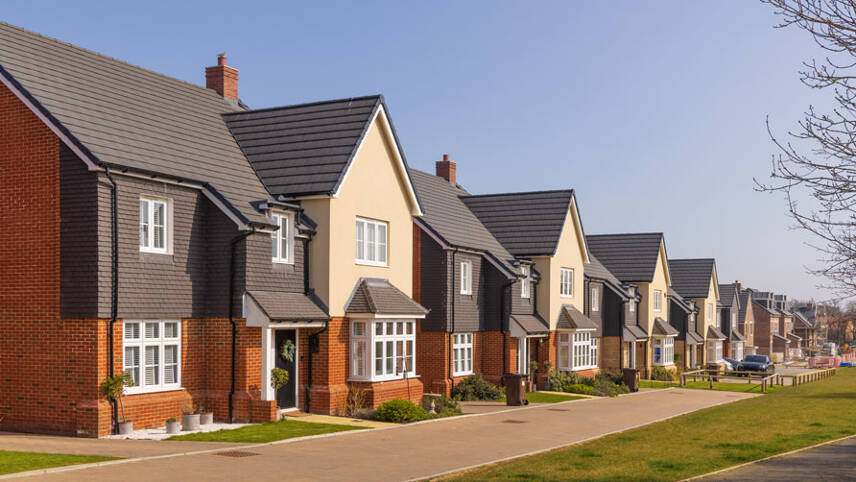High Court To Review UK Gov’s Plan on Building Energy Efficiency
High Court to hear legal challenge over ‘roadblock’ to localised home energy efficiency standards edie.net


High Court to hear legal challenge over ‘roadblock’ to localised home energy efficiency standards

Stock image
The Good Law Project and Rights Community Action have launched a legal challenge to a policy directive issued by the Department for Housing, Levelling Up and Communities (DHLUC) in late 2023. The directive aims to limit councils from setting their own carbon and energy efficiency standards for new homes, citing concerns over complexity and cost. This legal challenge emphasizes the importance of the Sustainable Development Goals (SDGs) related to affordable and clean energy (SDG 7), sustainable cities and communities (SDG 11), and climate action (SDG 13).
Directive Overview
- The DHLUC policy directive restricts local authorities from implementing their own carbon and energy efficiency standards for new homes.
- The directive argues that multiple local standards can increase costs and complexity for housebuilders, undermining economies of scale.
- The Good Law Project and Rights Community Action view this directive as an overreach of central Government power.
Legal Challenge and Support
- The Good Law Project accuses the Government of prioritizing short-term interests of housebuilders and developers over long-term sustainability.
- More than 50 councils, businesses, and charities across the UK have expressed support for the legal challenge.
- The Town and Country Planning Association is coordinating these efforts.
Assessment of Objectives
The High Court has agreed to host a judicial review of the directive to assess its impact on the objectives of the Climate Change Act and the UK’s net-zero target for 2050 (SDG 13).
The review will also evaluate whether the Government has complied with the environmental assessment requirements outlined in the 2021 Environment Act.
Implications for Sustainable Development
- The lack of coordinated policies on building energy efficiency and decarbonizing heat poses a risk to achieving the UK’s net-zero target (SDG 13).
- Councils face barriers in delivering on their net-zero targets, including time and resource constraints and difficulties accessing government funding (SDG 11).
The judicial review is scheduled to take place in late May, with a specific date yet to be determined. The outcome of this legal challenge will have significant implications for local authorities’ ability to plan for zero-carbon places and contribute to the achievement of the SDGs.
Published 15th April 2024
SDGs, Targets, and Indicators in the Article
1. Which SDGs are addressed or connected to the issues highlighted in the article?
- SDG 7: Affordable and Clean Energy
- SDG 11: Sustainable Cities and Communities
- SDG 13: Climate Action
- SDG 17: Partnerships for the Goals
The article discusses the policy directive that limits local authorities from setting their own carbon and energy efficiency standards for new homes. This directly relates to SDG 7, which aims to ensure access to affordable, reliable, sustainable, and modern energy for all. It also connects to SDG 11, which focuses on making cities and human settlements inclusive, safe, resilient, and sustainable. Additionally, the article mentions the Climate Change Act and the UK’s net-zero target, aligning with SDG 13 on climate action. Lastly, the involvement of various organizations and the need for laws to protect the environment highlight the importance of partnerships for achieving the goals, as emphasized in SDG 17.
2. What specific targets under those SDGs can be identified based on the article’s content?
- SDG 7.3: By 2030, double the global rate of improvement in energy efficiency
- SDG 11.6: By 2030, reduce the adverse per capita environmental impact of cities, including by paying special attention to air quality and municipal and other waste management
- SDG 13.2: Integrate climate change measures into national policies, strategies, and planning
- SDG 17.16: Enhance the global partnership for sustainable development, complemented by multi-stakeholder partnerships that mobilize and share knowledge, expertise, technology, and financial resources
Based on the article, the targets mentioned above are relevant to the issues discussed. The policy directive’s impact on local carbon and energy efficiency standards directly affects the improvement in energy efficiency (SDG 7.3) and the adverse environmental impact of cities (SDG 11.6). The need to assess the directive’s alignment with the Climate Change Act reflects the importance of integrating climate change measures into national policies (SDG 13.2). Lastly, the collaboration between organizations and the call for laws to protect the environment highlight the significance of enhancing global partnerships for sustainable development (SDG 17.16).
3. Are there any indicators mentioned or implied in the article that can be used to measure progress towards the identified targets?
- Energy efficiency improvements in new homes
- Adverse environmental impact of cities, including air quality and waste management
- Inclusion of climate change measures in national policies and planning
- Collaboration and coordination among organizations and stakeholders
The article does not explicitly mention specific indicators to measure progress towards the identified targets. However, it implies that monitoring energy efficiency improvements in new homes, assessing the environmental impact of cities (including air quality and waste management), evaluating the integration of climate change measures in policies and planning, and tracking collaboration among organizations and stakeholders would be relevant indicators.
Table: SDGs, Targets, and Indicators
| SDGs | Targets | Indicators |
|---|---|---|
| SDG 7: Affordable and Clean Energy | 7.3: By 2030, double the global rate of improvement in energy efficiency | – Energy efficiency improvements in new homes |
| SDG 11: Sustainable Cities and Communities | 11.6: By 2030, reduce the adverse per capita environmental impact of cities, including by paying special attention to air quality and municipal and other waste management | – Adverse environmental impact of cities, including air quality and waste management |
| SDG 13: Climate Action | 13.2: Integrate climate change measures into national policies, strategies, and planning | – Inclusion of climate change measures in national policies and planning |
| SDG 17: Partnerships for the Goals | 17.16: Enhance the global partnership for sustainable development, complemented by multi-stakeholder partnerships that mobilize and share knowledge, expertise, technology, and financial resources | – Collaboration and coordination among organizations and stakeholders |
Behold! This splendid article springs forth from the wellspring of knowledge, shaped by a wondrous proprietary AI technology that delved into a vast ocean of data, illuminating the path towards the Sustainable Development Goals. Remember that all rights are reserved by SDG Investors LLC, empowering us to champion progress together.
Source: edie.net

Join us, as fellow seekers of change, on a transformative journey at https://sdgtalks.ai/welcome, where you can become a member and actively contribute to shaping a brighter future.







